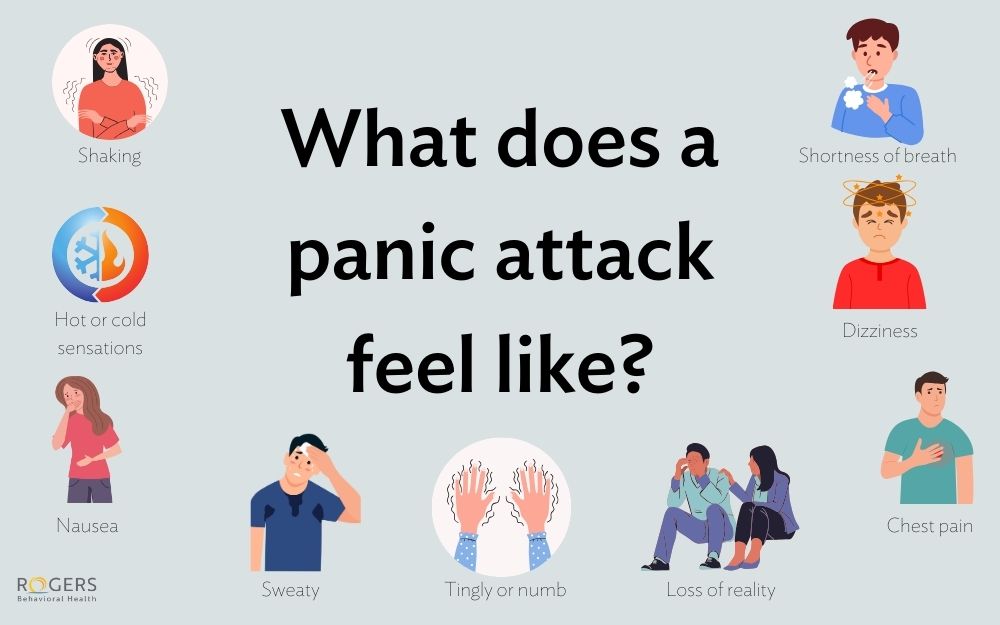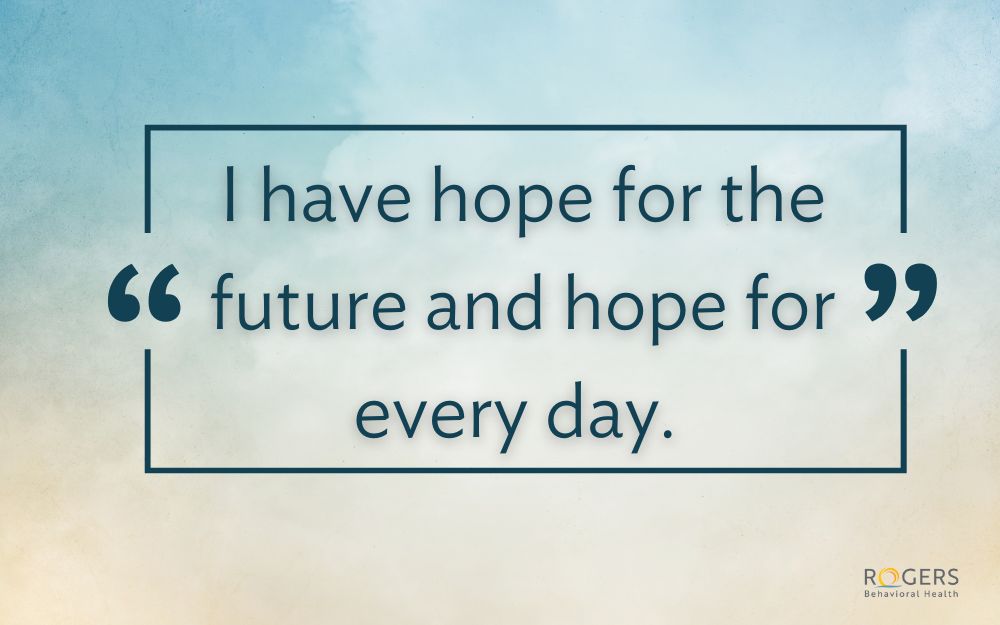Rogers Connect Care Outcomes
Posted on 11/18/22 01:48:pm
Share this article:
Rogers Behavioral Health offers Rogers Connect Care — a telehealth treatment option for people who would benefit from specialized partial hospitalization or intensive outpatient levels of care. Rogers Connect Care is currently available in IL, MN, TN, and WI.
Researchers at Rogers Research Center investigated whether virtual treatment during the pandemic had the same effectiveness in reducing symptoms as treatment delivered in-person, pre-pandemic.
The first of two published studies focused on obsessive-compulsive disorder (OCD).
A sample of 234 adults from the pandemic telehealth group were matched against 234 adults from an in-person, pre-pandemic group. Groups were matched for things like age, severity of symptoms, gender identity, sex, age, and level of care. Efforts were made to minimize differences that could be controlled, while acknowledging there were variables such as upbringing that may have some impact on the results.
Results from patients who had received partial hospitalization care (PHP) and intensive outpatient care (IOP) pre-pandemic were compared to results of those who received the same level of care via telehealth between July 2020 and March 2021. It was concluded that there were no differences in treatment response per the Yale-Brown Obsessive Compulsive Scale, a measure of severity of OCD symptoms.
Severity of symptoms when patients started treatment, their assessments during treatment, and at discharge were studied. Those who received virtual treatment during the pandemic, whether in PHP or IOP, were in lockstep with patients who had received in-person care pre-pandemic in terms of the decrease in symptoms they were experiencing. However, patients who received telehealth treatment required an additional 2.6 treatment days, which could be attributed to getting used to the telehealth format or unanticipated technological issues.
A second published study investigated the results of telehealth for patients receiving therapy during the pandemic for addiction, OCD, anxiety, eating disorders, depression, other mood disorders, and trauma recovery (PTSD).
Nearly 1,200 patients who received care in-person pre-pandemic were compared with 1,200 patients who received treatment via telehealth during the pandemic. Using the same matching technique as in the study of OCD symptom reduction in telehealth treatment and in-person care, both groups were found to respond equally to treatment. However, patients receiving telehealth required an additional 2.8 days of care.
Because of Rogers’ ongoing commitment to measurement-based care and our vast data set of historical patient outcomes, we are uniquely positioned to conduct these studies. Although there has been prior research conducted to study the effectiveness of remote mental health treatment, our ability to look at real-world outcomes across multiple service lines and levels of care helps inform the behavioral health field of the merits of telehealth and assists us in continuing to improve our telehealth protocols.
References
Caitlin M. Pinciotti, Nyssa Z. Bulkes, Gregor Horvath, Bradley C. Riemann (2022), Efficacy of intensive CBT telehealth for obsessive-compulsive disorder during the COVID-19 pandemic, Journal of Obsessive-Compulsive and Related Disorders, Vol. 32, 100705
Nyssa Z. Bulkes, Kaley Davis, Brian Kay, Bradley C. Riemann (2022), Comparing efficacy of telehealth to in-person mental health care in intensive-treatment-seeking adults, Journal of Psychiatric Research,
Vol. 145, 347-352,



